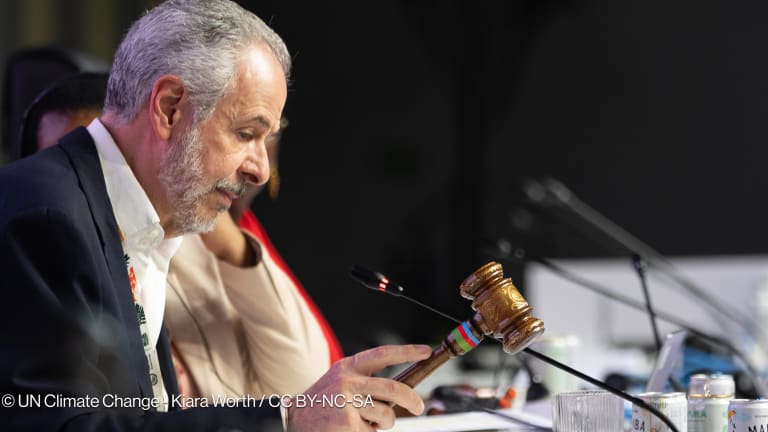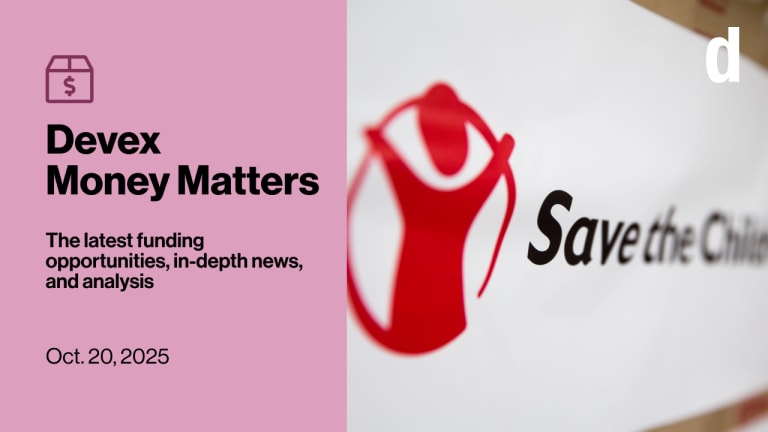
As governments from across the world are meeting this week at the third International Conference on Financing for Development in Addis Ababa, Ethiopia, we could witness a historic moment for sustainable development: A financing framework that marks a real turning point in the quest to eradicate global poverty and tackle inequality and climate change, and enables us to implement the sustainable development goals could be put in place.
Or not. The negotiations aren’t yet over, and the current draft of the outcome document doesn’t yet deliver the financial framework needed to build the world we want. In an ideal world, a strong and balanced financing framework that puts sustainable development at the core throughout would have been agreed already. We’d have strong commitments on tax governance; sustainable development criteria for private finance, aid targets and development effectiveness; increased transparency; and much more, but unfortunately this is not the case.
The good news, however, is that we can still get there and it’s the U.K. government that can make the critical difference.
How?
First, by being there and being determined to get the strongest results for sustainable development. Leadership from both the Department for International Development and the British Treasury is critical for a meaningful outcome in Addis, and there is no stronger signal than having British Treasury chief George Osborne and U.K. Secretary of State of International Development Justine Greening present at the conference. It’s a strong message to other countries — there are around 50 heads of state in Addis, mainly from Africa and least-developed countries — that the U.K. is committed to sustainable development.
Second, by doing better and taking firm steps to increase tax transparency and committing to an intergovernmental U.N. tax body. For the Group of 77 and many LDCs, this is a key ask; in fact it is the make-or-break issue that is bringing the negotiations to a standstill. A commitment to an adequately resourced intergovernmental tax body under the auspices of the U.N. is a key step in improving international tax governance. It would ensure all countries are legitimately represented at the table when decisions on international tax issues are taken, including issues most critical to developing countries. It comes down to the mantra: No taxation without representation. The U.K. is in the best position to convert lessons learned into ambitious action.
Tax transparency is also crucial to improve domestic resource mobilization, and during the British G-8 presidency in 2013, the U.K. initiated a valuable dialogue to improve this. Now is the time to follow with action — by committing to public country-by-country reporting by multinationals, public registers of beneficial owners of companies and trusts, and the universal use of open data formats.
Third, and by no means least, we need others to step up. The U.K. has done a great job and is internationally recognized as a credible partner and leader on aid spending. We were the first G-7 country to meet our aid spending target and have subsequently enshrined into law the U.N. target of spending 0.7 percent of gross national income on official development assistance. Now there’s a chance to bring about a global commitment — the U.K. can persuade other countries to step up and commit to 0.7 percent by 2020.
This historic promise, made over 40 years ago, was included in early versions of the #FFD3 draft outcome document, but has been watered down during the negotiations. Donor countries should prove they are credible partners at the negotiation table by honoring their past and present aid commitments. To go further, they should also outline at the national level how and where they are going to increase ODA in order to meet their targets by 2020.
We need to ensure that at least half of all ODA goes to those most in need to reverse the current trend of declining aid to LDCs.
So surely that’s enough?
Well, not quite, because equally important are strong commitments to increase the effectiveness of public and private financial flows. There has to be a commitment to clear and time-bound plans at the national level on implementing effectiveness commitments particularly from Paris, Accra and Busan.
In regards to private finance, a mandate needs to be created for a U.N. process to develop a set of “sustainable development criteria,” building on existing principles such as development effectiveness, International Labor Organization standards, Rio principles and the U.N. Guiding Principles on Business and Human Rights. The “sustainable development criteria” should be applied to all forms of publicly backed private finance — both in the process of program design and in any monitoring and accountability mechanisms.
If Addis can deliver in these areas, it will be a historic moment to look back and say: “See, this is a moment where we made a difference. Addis was the first step toward financing the future of development in a fair, transparent and equitable way, and we were the generation to prove we wanted to end extreme poverty.”
Devex is in Addis to give you the inside track on #Fin4Dev. Check out our running blog, and follow @Devex, @richard_devex and @AlterIgoe to get the latest news and developments from #FFD3.








